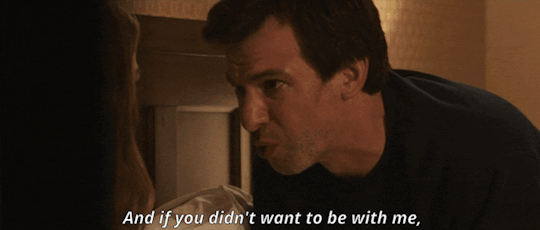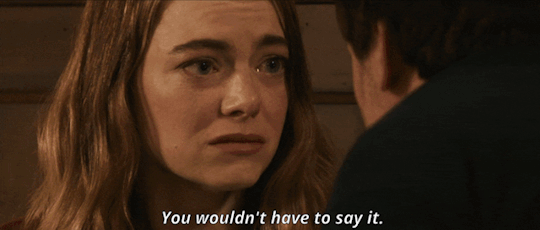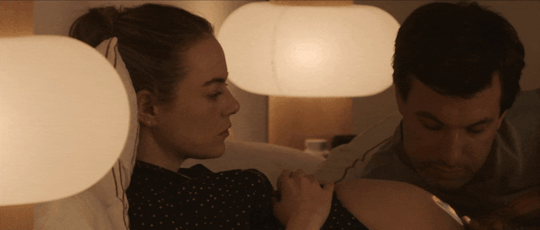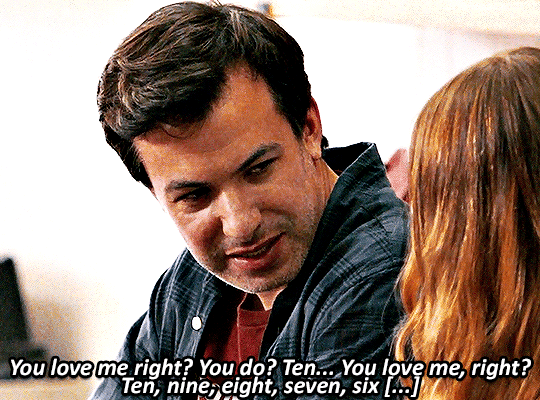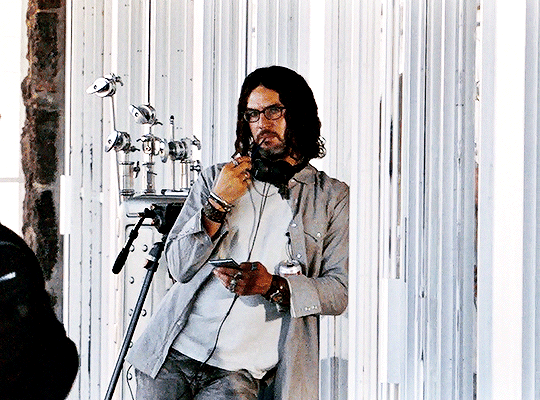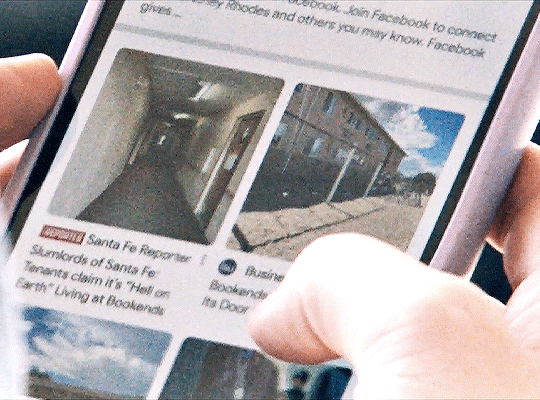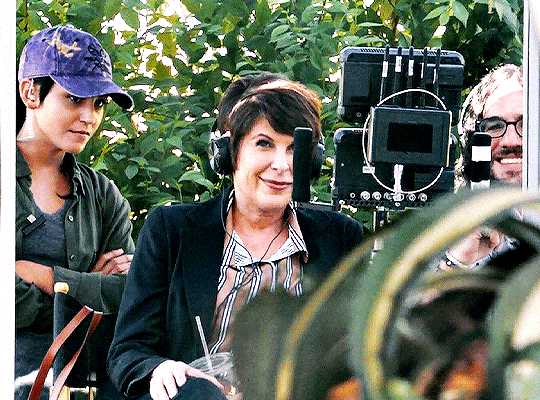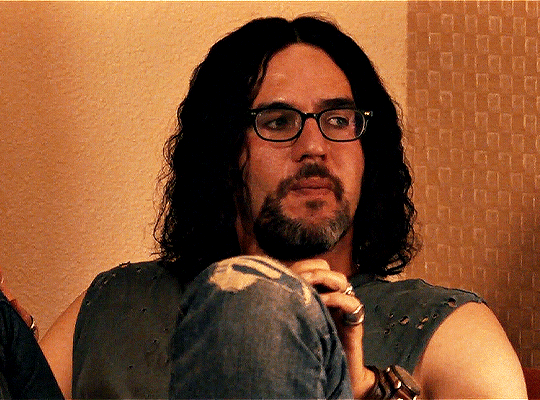Don't wanna be here? Send us removal request.
Text
The Curse finale interpretation
Ash's ascent/death, parallels to pregnancy, and "lived experience" in The Curse
There was a parallel between the way nobody believed or understood Asher when he was stuck in the tree to the way that pregnant people are treated while they are in labor (or even how women are treated in medical settings in general)
Ash's ascent/death
Nobody would believe Ash (besides Whitney who witnessed him floating inside the house and Moses who saw Ash float up into the tree) that he couldn't come down. Everyone who sees him projects their own interpretation of Ash's experience and intentions.
Dougie thinks Ash is running from his responsibilities because Dougie's dad did the same, and (from Dougie's POV), some men panic or even run away from their responsibilities once their partner is in labor or gives birth.
The neighbors from the community think that Ash and Dougie must be filming something because that's is their experience with these outsiders; they are TV people and act strangely, which can be explained by assuming that any weird behavior is a part of making a TV show. This explanation is also the best that they have for how Ash could possibly defy physical law (because it really isn't reasonable to assume that he just is breaking physical law in some way).
Ash repeatedly tells them that he will fly up. He tries his best to explain what he is going through, and he isn't doing the best job, probably because he's extremely afraid that he might die. I repeatedly tells Dougie and the first responders what he needs from them, and nobody listens. They think that Ash is delusional and that everyone else has a better understanding of the situation and therefore know what to do.
Connection to pregnancy
I think some of Ash's experience can be seen as analogous to what pregnant women (and women in medical settings in general) experience. Historically, doctors have been male, and they obviously have never been pregnant or gone into labor, and studies show that even women healthcare providers dismiss women and minorities in medical settings (it has to do with socialized biases in everyone, which I will come back to).
These professionals often dismiss a pregnant person's self-report of needing help, and a CDC report shows that 1 in 5 women report medical mistreatment while giving birth:
Approximately one in five (20.4%) respondents reported experiencing at least one type of mistreatment. The most commonly reported experiences of mistreatment were being ignored by health care providers, having requests for help refused, or not responded to (9.7%); being shouted at or scolded by health care providers (6.7%); having their physical privacy violated (5.1%); and being threatened with withholding of treatment or being forced to accept treatment they did not want (4.6%).
The same report found that the poorer the woman or more marginalized her background, the more risk of facing mistreatment:
Overall, 28.9% of respondents reported experiencing at least one form of discrimination during maternity care (Table 3), with highest prevalences reported by Black (40.1%), multiracial (39.4%), and Hispanic (36.6%) respondents. Overall, the most commonly reported reasons for discrimination were age (10.1%), weight (9.7%), and income (6.5%); reasons varied by race and ethnicity.
Initially Whitney planned to go to what was implied to be a better hospital. It feels like the show maybe wanted the viewer to expect that Whitney would die due to being at a "poor" hospital (and maybe she did; the finale went no full magical realism, imo). Benny and Nathan probably expected that viewers would immediately think or even assume that this would happen (drawing from our own biases, even if they are informed by statistics), which makes me think that Ash's experience is analogous to pregnant peoples' medical mistreatment.
In these medical settings, doctors frequently ignore a pregnant person's self-reports or requests for help, and instead, the doctors and medical staff (regardless of gender) tend to think that they know better or that the pregnant person is delusional/hormonal/emotional/etc. They dismiss their lived experience. Doctors have historically been male, so they have NO experience being pregnant, but they think they know better than the pregnant person, and even women who have been pregnant cannot speak for every woman. It is not rational to take your own experiences and extrapolate them to everyone else (which has been a common theme in the show: making assumptions based off of limited experience or socialized biases).
Like pregnant people facing medical mistreatment, Ash was ignored by health care providers Dougie and First Responders, had requests for help refused, or not responded to; he was shouted at or scolded by health care providers Dougie for running from responsibilities of becoming a father; and had treatment withheld (the anchored net that he repeatedly begged for) and was forced to accept treatment they did not want (tree branch cut off, sending him to his death).
Lived experience, hermeneutical gaps, and epistemic injustice
OKAY. So this comes back to (what I have taken to be) the overall recurrent theme of The Curse: lived experience, hermeneutical gaps/injustice, and testimonial injustice (which are forms of epistemic injustice, for anyone who is interested in learning more about this).
Hermeneutical gaps occur when a person or group lacks the concepts or terminology to describe their experience. Such gaps lead to hermeneutical injustice; Miranda Fricker describes hermeneutical injustice as occurring
when a gap in collective interpretive resources puts someone at an unfair disadvantage when it comes to making sense of their social experiences. An example of the first might be that the police do not believe you because you are black; an example of the second might be that you suffer sexual harassment in a culture that still lacks that critical concept . . . hermeneutical injustice is caused by structural prejudice in the economy of collective hermeneutical resources.
Before the term 'sexual harassment' came to be, people impacted by such harassment didn't have the concepts or terminology to be able to describe their experience or what they were going through; they were often dismissed as just being flirted with or they didn't even discuss their experience because even though the felt like something was wrong, they didn't have the concepts to articulate their experience, particularly to groups who do not have such experiences.
Here, Fricker describes hermeneutical injustice as:
. . . someone has a significant area of their social experience obscured from understanding owing to prejudicial flaws in shared resources for social interpretation . . . The wrong is analysed in terms of a situated hermeneutical inequality: the prejudicial flaws in shared interpretive resources prevent the subject from making sense of an experience which it is strongly in her interests to render intelligible.
So hermeneutical gaps (lack of conceptual resources [words or formed concepts] to describe experience) lead to hermeneutical injustice (where a person's experience is misinterpreted in a way that leads to harm or testimonial injustice).
Testimonial injustice occurs when one party (person or group) dismisses the credibility of another group (basically treating the marginalized person as though they are not a true knower).
An example might be Fernando trying to be heard about his knowledge of the community violence. Whitney dismisses him, thinking that she knows more about systemic issues. Ash takes advantage of this kind of injustice when he tries to cover his lie that Abshir, Nala, and Hani live in transitional housing once they bought the property they live in. Whitney called out the inconsistency, and Ash decided to exploit the lack of credibility marginalized people are usually extended. He says something like "honestly I don't know with them they say one thing then another," implying that they are dishonest.
Connecting Ash's ascent/death and medical mistreatment of pregnant people with overall themes in The Curse
ANYWAY. Pregnant people in labor go through a unique experience, and sometimes they lack the concepts necessary to explain their experience in a way that medical professionals will "understand" or take seriously (hermeneutical gap leading to hermeneutical injustice). Further, medical professionals dismiss a pregnant person's testimony and treat them like they are not credible while the medical professionals work from their own assumptions or formal medical knowledge (testimonial injustice).
Asher does not have the concepts to describe what he's going through. Nobody has experienced what he experienced, and the experience is new to him, so he doesn't know how to convey what he experiences in a way that Dougie and First Responders will understand. Further, Dougie and the First Responders dismiss Ash's testimony and treats him like he's not credible while Dougie and the First Responders work from their own assumptions or ascriptions of Ash's intentions.
Throughout the show, our main characters have made assumptions about poor people, natives, and their own employees. Many of these assumptions arise out of dismissing or discrediting the experiences of others in favor of their own interpretation of events or others' intentions. Whitney (and Ash) thinks she knows what's best for Las Espanola, even though she lacks the lived experience or even the proper educational experience to understand the complex nature of amending systemic injustice. She is like the medical professionals and First Responders who do not listen to the lived experiences (self-reports) of what people want or need.
This behavior necessarily implies that the people she's helping don't know what's best for themselves, which implies that Whitney has some kind of expertise that qualifies her to intervene on their behalf. She actually doesn't; she has no qualification other than she happens to have rich parents, which doesn't really qualify a person for any kind of job, especially one as complicated as amending economic or social injustice.
I didn't expect there to be growth on behalf of the characters (largely because people have pointed out that Safdie brother projects rarely involve any kind of meaningful growth or resolution; they have bleak outcomes), but in the finale, I thought that Whitney (and Ash) had grown. She expresses jealousy and bitterness that Cara was receiving national attention for leaving the art scene while her and Ash's show wasn't even aired; it ended up being direct to app content. She uncharitably criticizes Cara for disliking exploitive collectors, and Whit says that she thinks that Cara quit because no one bought her work. Ash jokes that maybe if Whit quits her project to work in a massage parlor, maybe people will write about her too. Whit bitterly jokes back that she would need some kind of cultural sob story like saying she was making a statement on the Holocaust. Ash says he knows that she's making joke that selling her art retraumatized her but goes on to point out that native people have gone through a lot, which he says that he fully understands where Cara is coming from and that people process tragedy in their own way (discussing Mel Brooks), and Whitney finally concedes that she probably shouldn't be talking the way she is and that she doesn't have that lived experience. He assures her that he considers her Jewish (and that she can make such jokes), but I think the takeaway is that—on some level—Whitney has gained some self-awareness and realizes that her experiences shouldn't inform the way she interprets other peoples' choices and intentions.
The concepts I discussed here might also be connected to the Dunning-Kruger Effect, which is the phenomenon that people (at any level of intelligence or education) learn something and think that they have a better understanding of what is going on than they actually do. When people (like Whitney) decide to act on such false assumptions of self-evaluation, they are likely to make mistakes or perpetuate injustice.
tldr; the real curse (imo) is the insidious implicit biases that are socialized into us and lead us to making assumptions about others' experiences and intentions. These assumptions ultimately create barriers that limit social understanding and social progress. If we all take a moment to examine why we reasoned as we do or where we get our ideas about people who don't share our ethnic, economic, gendered, religious, etc. background, we might find that we are missing the necessary lived experience (a hermeneutical gap) to understand where they might be coming from. Instead of assuming intent or competency or dismissing or being suspicious, we should all charitably interpret others to try to assume the best in and most of other people. It is what we would want others to do for us. Performing this kind of empathy will ultimately lead to developing the necessary empathy to overcome such biases by habit alone, which will create a more compassionate, empathetic, and understanding world, while also deepening and enriching our own lives and the lives of others by celebrating our plurality.
When we allow certain ideas into our head, they become very real to us, and when we act on those ideas without examining them carefully, those false beliefs can cause real harm.
86 notes
·
View notes
Text



The Curse x 2001: A Space Odyssey
31 notes
·
View notes
Text

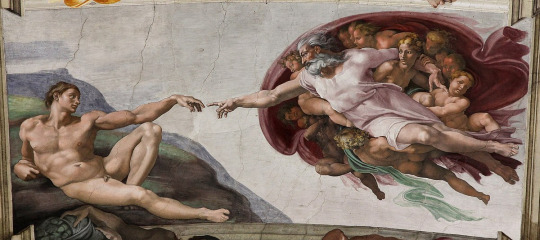
ok maybe this is a shitpost, but is it so far fetched given these parallels:
Ash is stuck in the house like their baby is stuck in Whit's womb Ash gets pulled out of the house by the doula Ash gets cut out of the tree when Whit is getting a c-section Ash dies (and is reborn?) as Whit is giving birth to their baby Ash's last words to Whit were along the lines of "wahhh i'm a baby"
🤔
#the curse#nathan fielder#benny safdie#emma stone#showtime#a24#green queen#michelangelo#the creation of adam#sistine chapel
36 notes
·
View notes
Text

A24's Cursed merch
#the curse#nathan fielder#benny safdie#emma stone#showtime#a24#merch#a24's merch and novelty items are always outstanding
12 notes
·
View notes
Text











You want to take me to the room, or do you want to eat first?
46 notes
·
View notes
Text

14 notes
·
View notes
Text

The Curse, S01E10 “Green Queen”
Months later… Season finale
#the curse#nathan fielder#benny safdie#emma stone#showtime#a24#green queen#what she looking at?#she is holding cleaning supplies and we saw in an earlier episode she hires someone to do the cleaning so what is this???
17 notes
·
View notes
Text
Ash raps Dead Prez's "Hell Yeah"
18 notes
·
View notes
Text
Teaser from S01E09 "Young Hearts"
7 notes
·
View notes
Text
#the curse#nathan fielder#benny safdie#emma stone#showtime#a24#sorry but whit is abusive and this isn't even the first time#but that's not surprising given how exploitive her parents are#this is disgusting to watch 🤢
103 notes
·
View notes
Text




The Curse, S01E09 "Young Hearts"
Dougie gets a surprise visit. The Siegels go bowling.
description from Google:
Whitney and Dougie reassess their plan after a visit from a network exec. The Siegels go bowling.
7 notes
·
View notes
Text










THE CURSE (2023- ) Season 1, Episode 6 - The Fire Burns On
53 notes
·
View notes
Text










THE CURSE (2023- ) Season 1, Episode 7 - Self-Exclusion
92 notes
·
View notes
